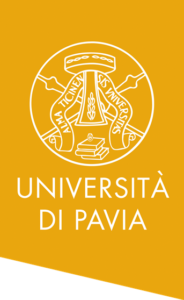 The University of Pavia (UniPV) is one of the oldest in Europe, founded in 825. Many renowned
The University of Pavia (UniPV) is one of the oldest in Europe, founded in 825. Many renowned
humanists and scientists studied and taught at the Alma Ticinensis Universitas, such as Cardano, the inventor of the Cardanic joint, and Alessandro Volta, the inventor of electric battery. The Department of Electrical, Computer and Biomedical Engineering hosts 80 professors with internationally recognized scientific profile which are active in the research fields of microelectronics, bio-engineering and computer science. Many groups in the Department have established and proved experience in developing new analog and high speed (RF, mmW) integrated circuits. Thanks to the intense activity in this field, UniPV is present every year at the IEEE International Solid State Circuit Conference (ISSCC), discovering new achievements. The scientific production of high-profile, internationally widespread in recent years, places UniPV in the top universities worldwide within the research field of integrated circuits. Most of the research activity will be carried out within the Analog Integrated Circuits Lab, which is coordinated by three faculty members and involves an average of 10 researchers in the position of MS students, PhDs and Post doc.
Main Tasks in the Project
The primary role of UPV within the project is the design and test of the Local Oscillator generation circuits for the D-band transceiver with the BiCMOS 55nm technology. UniPV will contribute to the following work packages:
WP1: UniPV will contribute by providing the literature overview and preliminary feasibility study for transceiver architecture and spec definition, considering the issues and constraints related the LO generation circuits.
WP2: UniPV will contribute by investigating new circuit solutions for efficient D-band LO generation circuits. Test chips will be designed, integrated and characterized in UniPV labs. The target is to advance of the state of the art of LO generation circuits for spectral and power efficient >10Gb/s wireless transceivers in D-band.
WP6: UniPV will coordinate these activities as WP leader. UniPV will contribute to dissemination through scientific papers and by promoting the project to students, researchers and professors worldwide by leveraging different communication channels.
